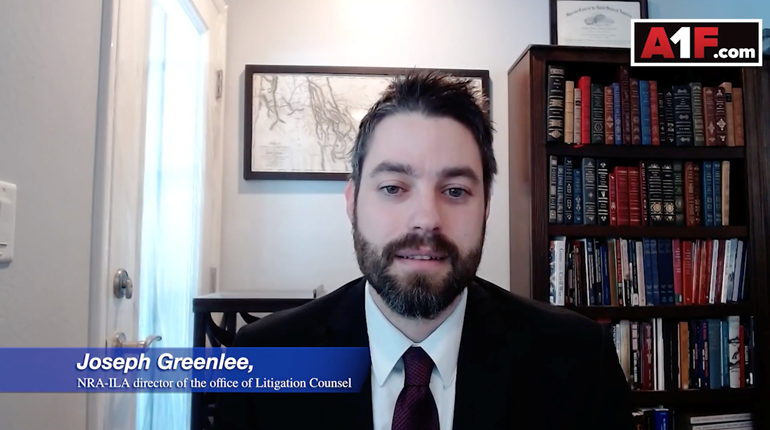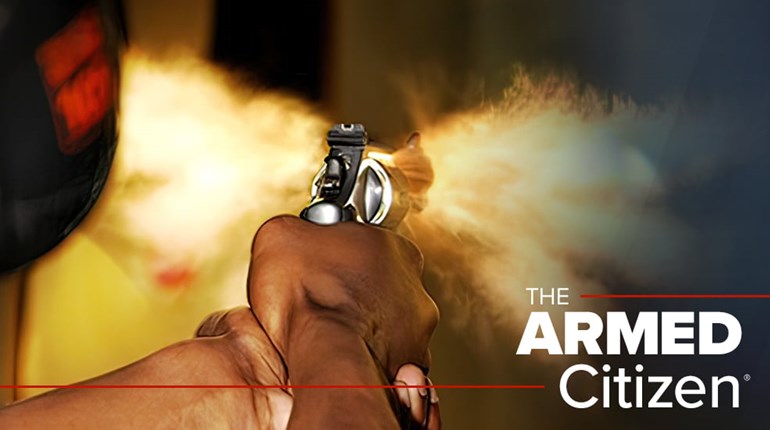
In a disappointing decision, the U.S. Supreme Court called New York State Rifle & Pistol Association v. New York City moot.
This was the first significant Second Amendment case the high court had heard in a decade. Instead of handing down a ruling, a majority of justices took the dodge New York City’s lawyers offered them: They declared that the gun-control laws in question had already been changed by the city and state of New York, and therefore the challenge is made irrelevant.
The justices did this after, in a “friend-of-the-court” brief last fall, five U.S. senators, all Democrats, threatened the U.S. Supreme Court by writing: “The Supreme Court is not well. And the people know it. Perhaps the Court can heal itself before the public demands it be ‘restructured in order to reduce the influence of politics.’ Particularly on the urgent issue of gun control, a nation desperately needs it to heal.”
The issue behind this case’s central complaint was that New York City’s police commissioner forbade most licensed gun owners (those with “premises permits”) from taking their guns to ranges and second homes outside city limits.
After the U.S. Supreme Court accepted this case, New York City repealed this rule, though it gave itself a lot of discretion in how to apply it; for example, it’s unclear whether a person when traveling out of the City with a licensed gun can even stop to fill their gas tank.
Then, last fall, the Court declined to call the case moot. This, at the time, gave hope to anyone who cherishes their American freedom; after all, President Donald J. Trump’s nominees, Justices Neil Gorsuch and Brett Kavanaugh, might just vote to expand access to Second Amendment rights.
Instead, the case ended up being ruled “moot” anyway.
In calling the case “moot,” a majority of the justices ruled: “On remand, the Court of Appeals and the District Court may consider whether petitioners may still add a claim for damages in this lawsuit with respect to New York City’s old rule. The judgment of the Court of Appeals is vacated, and the case is remanded for such proceedings as are appropriate.”
So the high court punted at a time when some lower courts have been all but disregarding the U.S. Supreme Court’s previous landmark Second Amendment decisions—District of Columbia v. Heller (2008) and McDonald v. Chicago (2010).
In a concurring opinion to this decision, Justice Brett Kavanaugh, after agreeing with the Court’s decision to call this case “moot,” wrote: “I share JUSTICE ALITO’s concern that some federal and state courts may not be properly applying Heller and McDonald. The Court should address that issue soon, perhaps in one of the several Second Amendment cases with petitions for certiorari now pending before the Court.”
Justice Samuel Alito’s dissent to this decision is so sharp, it would make the late Justice Antonin Scalia proud.
“By incorrectly dismissing this case as moot, the Court permits our docket to be manipulated in a way that should not be countenanced. Twelve years ago in District of Columbia v. Heller … we held that the Second Amendment protects the right of ordinary Americans to keep and bear arms. Two years later, our decision in McDonald v. Chicago … established that this right is fully applicable to the States. Since then, the lower courts have decided numerous cases involving Second Amendment challenges to a variety of federal, state, and local laws. Most have failed. We have been asked to review many of these decisions, but until this case, we denied all such requests,” wrote Justice Alito.
Quoting Chafin v. Chafin (2013), Justice Alito noted that “a case ‘becomes moot only when it is impossible for a court to grant any effectual relief whatever to the prevailing party.’ As long as the parties have a concrete interest, however small, in the outcome of the litigation, the case is not moot.”
Justice Alito then said the central part of this case, the “premises license,” is still very much a live constitutional issue. He shows this by outlining what a New York City resident must endure to hopefully receive a premises license enabling them to shoot at a range, not to carry concealed.
First of all, the New York City Police Department will only issue a premises license to someone the bureaucracy thinks has a “good moral character.” Then, New York City “residents must submit their applications in-person at One Police Plaza in Manhattan. An applicant must pay a fee of $431.50; must provide proof of age, citizenship, and residence; and must produce an original Social Security card,” writes Justice Alito.
In this lengthy process, an applicant must undergo a police investigation and provide detailed information on past employment, criminal history, health questions and more. The applicant must even “explain where and how he or she will safeguard the handgun when not in use, and furnish the name and address of a New York State resident who will take custody of the handgun in the event of the applicant’s death or disability.”
The gauntlet goes on and on in a bureaucratic pummeling that the City can use to deny an applicant for any whim or asserted rationale whatsoever.
“The NYPD may revoke a premises license at any time, including for such things as laminating the license. And a license expires after three years, so a licensee who wants to continue to possess a gun in the home after that time must file a renewal application,” writes Alito.
Clearly, New York City is not treating the Second Amendment as a right that’s specifically protected in the U.S. Bill of Rights. They are treating it as a legal privilege they can restrict or outright takeaway whenever and however they like.
That, by itself, is an affront to the U.S. Supreme Court’s Heller and McDonald decisions, yet the U.S. Supreme Court called it “moot.”

































